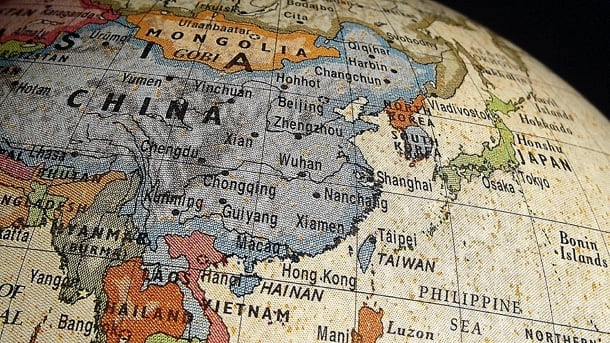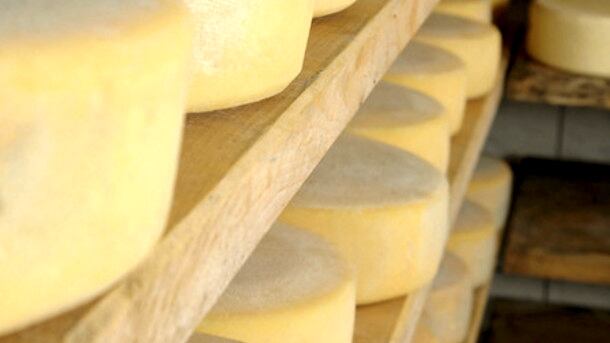The Osaka-based business has developed a process that transforms tree pulp, which is used for its best-selling rayon products, into a digestible flour through the addition of konjac, an indigenous yam-like plant.
The resulting food is rich in fibre, and contains no gluten or fat and almost no carbohydrates. The finished product weighs in at just just 60 calories per kilo—more than 60 times less than wheat.
"We're entering the food business," said Takashi Asami, manager at Omikenshi's strategic material development department, told Bloomberg. "Demand for diet food is strong and looks promising.”
Japan’s health food market was worth JPY1.2tr (US$9.8bn) in 2013, having more than doubled over two decades, according to Japan's Consumer Affairs Agency.
At the same time, Japan’s saturated textile market is threatened by rising imports. The industry has shrunk roughly 90% from its peak in 1967, according to the Japan Chemical Fibres Association.
While the addition of konjac makes the indigestible cellulose of the wood pulp edible, the plant’s bitter taste is not widely appreciated by consumers in their noodles. But the process works both ways: the pulp serves to soften the flavour and texture of the konjac-laced noodles.
Omikenshi will spend JPY1bn (US$8.2m) on a facility to manufacture the flour in its textile plant in Kakogawa city with output set to reach 30 tonnes a month, Bloomberg says, adding that the company is in talks with food companies to commercialise the product.
"It can be used as a substitute for wheat in products ranging from ramen, pasta, and Chinese dumplings," Asami told the wire. "We are discussing exporting it to China in the future as obesity is becoming a major problem for children there.”
More stories from the Far East...
Fears quashed for trans-Strait inspections, though talks stall over agriculture disparity
Speeding up the customs clearance process for trade between Taiwan and China would not compromise the island’s stringent food safety requirements, though it would succeed in making Taiwanese exports more competitive, the Ministry of Economic Affairs (MOEA) has claimed.

The two countries have been negotiating a new trade agreement whereby the customs reporting process could be reduced to 48 hours, addressing concerns by Taiwanese exporters that current system is not transparent and is prone to delays.
Yet following the latest round of cross-strait trade talks, some business leaders have voiced fears that a new, expedited procedure could undercut the quality of food imports from mainland China.
The MOEA has stressed that a 48-hour principle would not apply to products that require close-up examination by the relevant authorities, and that all food imports would still be regulated by Taiwan’s food safety act, along with existing inspection regulations. Agricultural quarantines would also apply, it said.
Taiwan firms would be able to lower their transaction costs through a faster customs process, and this in turn would make their products more competitive on the Chinese market, the ministry added.
It appears that the negotiations had been making increased headway after the leaders of the two countries met recently in Singapore. However the talks stalled earlier this week after a three-day meeting between senior officials, during which Taiwan turned down China's request for it to lift import bans on Chinese farm produce.
Taiwan currently bans imports of 615 agricultural products from China, while the Chinese government gives preferential treatment to all Taiwanese farm produce exported to the mainland. Seeing this as unfair, Beijing has urged its Taipei counterparts to address this disparity.
"We told the other side that we will continue import controls on any products that may affect farmers' livelihood or invoke food safety concerns," said Hsiao Tung-chiung, deputy director of the Taiwan’s Council of Agriculture.
The two countries are now planning to hold a new round of talks on the trade pact in December in an attempt to narrow their differences.
Korea’s new-found love of imported cheese makes up for world’s highest milk prices
Now one of Asia’s fastest-growing markets, South Korea offers greater export opportunities for countries like New Zealand as tariffs are cut through free-trade agreements, according to an American market report.

Cheese consumption has grown by one-third over the last five years, with imports now worth nearly US$500m per year in South Korea, though the market is still at an early stage in terms of product variety and consumption patterns, say analysts.
By last year, the country’s cheese imports had increased by 60% since 2010 to 97,000 tonnes, according to the US Department of Agriculture’s Global Agricultural Information Network (GAIN) report. In comparison, neighbouring Japan's cheese imports rose by just 17% to 232,000 tonnes over the same period.
Cheese sales increased by 9% in current volume terms to reach 118,000 tonnes in 2014. Concurrently, unprocessed cheese consumption grew by 12% and contribute 80% of overall sales volume.
“[South Koreans] are familiar with fermented food… Cheese is also fermented. So I think they are getting used to it fast," Seoul National University’s Hwang Keum-taek told Reuters.
Fonterra is seeing increased export potential under the New Zealand-Korea free trade agreement, which will see the phasing-out of import tariffs of up to 36% by 2026.
"Sales of our food-service products such as mozzarella cheese are performing strongly due to growing demand from Korea's bakery, fast-food and pre-prepared meal categories," said Kelvin Wickham, Fonterra’s managing director of global ingredients, told the wire.
The environment might be favourable for exporters, but Korea’s domestic cheese industry is being hampered by the high price of domestic raw fluid milk, according to GAIN.
Across the broader dairy industry, demand for healthier premium products has spurred growth in fluid milk product consumption as more consumers seek products with added health benefits.
This, however, comes despite a decline in overall volume sales as new government price controls push average drinking milk prices higher. The cost of local raw milk has increased by 13% to US$1 per litre since January—the highest in the world, according to GAIN.
Probiotics have also seen growth, with yoghurt up 8% to reach sales of US$2.5bn in 2014, due to its newfound trend status in South Korea’s health-conscious market.
